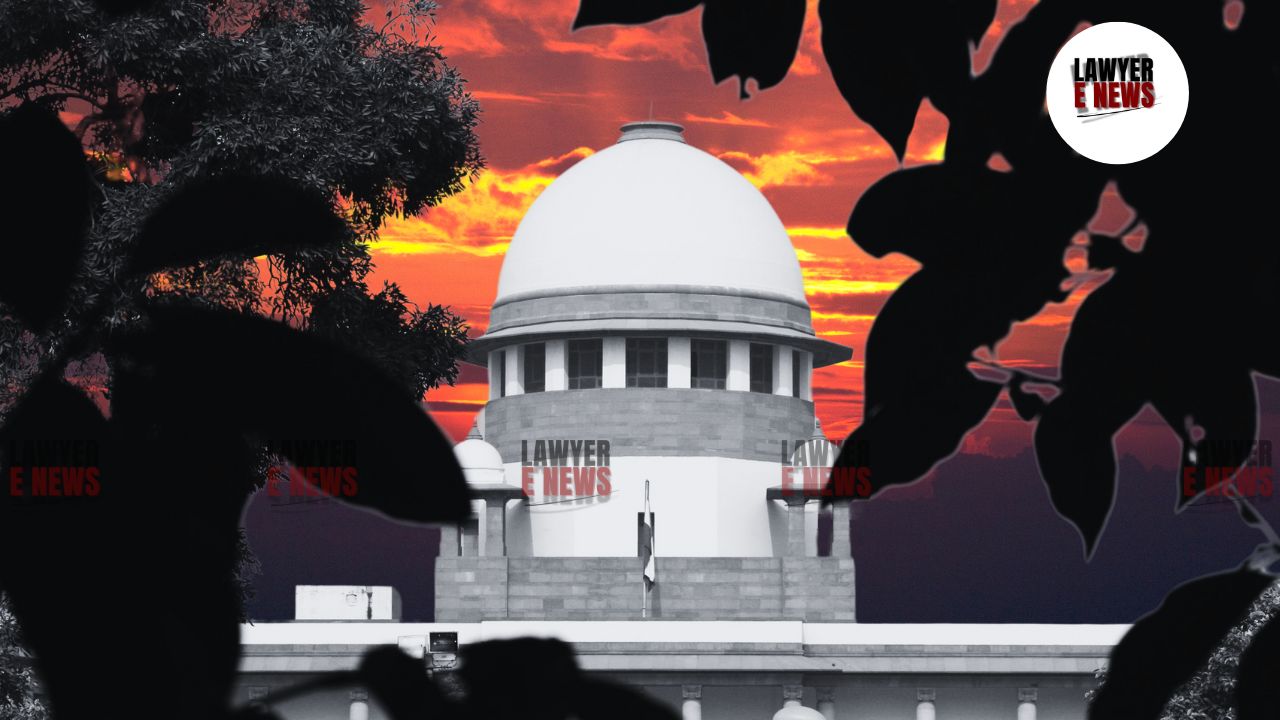-
by Admin
15 February 2026 5:35 AM



Balance Sheet Entries and One-Time Settlement Proposal Confirm Acknowledgment of Debt, Extending Limitation Period under IBC - Supreme Court, On October 22, 2024, dismissed an appeal challenging the initiation of the Corporate Insolvency Resolution Process (CIRP) under Section 7 of the Insolvency and Bankruptcy Code, 2016 (IBC). In Vidyasagar Prasad v. UCO Bank & Anr, the bench, comprising Justice Pamidighantam Sri Narasimha and Justice Sandeep Mehta, ruled that the acknowledgment of debt in the corporate debtor’s balance sheets and a One-Time Settlement (OTS) proposal constituted valid acknowledgment under Section 18 of the Limitation Act, 1963. Consequently, the initiation of CIRP was upheld as being within the limitation period.
The appeal arose after UCO Bank filed an application under Section 7 of the IBC in 2019, seeking to initiate CIRP against the corporate debtor for defaulting on loan repayments. The appellant, a suspended director of the corporate debtor, contended that the application was time-barred as the loan account had been classified as a Non-Performing Asset (NPA) on November 5, 2014, and the three-year limitation period had expired. Additionally, the appellant argued that the corporate debtor’s balance sheets and other documents did not specifically acknowledge the debt owed to UCO Bank.
The Court, however, dismissed these arguments, holding that entries in the corporate debtor’s balance sheets for the years 2017 and 2019, coupled with the OTS proposal made to UCO Bank, amounted to valid acknowledgment of debt under Section 18 of the Limitation Act. This acknowledgment restarted the limitation period, making the CIRP application, filed in February 2019, timely.
The Court extensively cited its ruling in Asset Reconstruction Company (India) Ltd. v. Bishal Jaiswal (2021), affirming that balance sheet entries, even if they do not mention the specific creditor’s name, can still be treated as acknowledgment of a subsisting liability. The Court noted that the statutory format for corporate balance sheets under the Companies Act, 2013 does not mandate specific mention of each creditor. In this case, the debtor’s balance sheet referred to outstanding liabilities, including term loans and interest, which indicated a continuing default.
Further, the Court emphasized that the corporate debtor’s proposal for a One-Time Settlement (OTS) with UCO Bank in June 2016 was another clear acknowledgment of debt. Drawing upon the principles laid out in Lakshmirattan Cotton Mills Co. Ltd. v. Aluminium Corporation of India Ltd. (1971) and Dena Bank v. C. Shivakumar Reddy (2021), the Court reiterated that even without an explicit promise to pay, a statement acknowledging a debtor-creditor relationship and a subsisting liability extends the limitation period.
The Court rejected the appellant’s argument that the OTS proposal was insufficient to extend the limitation period because it did not explicitly reference the debt to UCO Bank. The Court ruled that acknowledgment of a general liability, such as in an OTS proposal, suffices to confirm the existence of a debt.
Both the National Company Law Tribunal (NCLT) and the National Company Law Appellate Tribunal (NCLAT) had previously ruled in favor of UCO Bank, holding that the balance sheet entries and the OTS proposal constituted acknowledgment of debt, thereby extending the limitation period under Section 18 of the Limitation Act. The Supreme Court found no fault with these findings, upholding the orders of both tribunals.
Asset Reconstruction Company (India) Ltd. v. Bishal Jaiswal: The balance sheet of a company, even without explicit mention of a creditor, can be construed as acknowledgment of a subsisting debt.
Lakshmirattan Cotton Mills Co. Ltd. v. Aluminium Corporation of India Ltd.: A statement relating to a subsisting liability can be inferred as acknowledgment of a debt, even if it does not explicitly promise repayment.
Dena Bank v. C. Shivakumar Reddy: The Supreme Court ruled that an OTS proposal can be construed as an acknowledgment of debt sufficient to extend the limitation period under Section 18 of the Limitation Act.
The Supreme Court's decision in this case reinforces the principle that balance sheets and financial statements of a corporate debtor, even without specific mention of a creditor, can amount to acknowledgment of debt under Section 18 of the Limitation Act, thereby extending the limitation period for initiating CIRP. Additionally, the Court has clarified that an OTS proposal, even when made "without prejudice," can constitute an acknowledgment of a debtor-creditor relationship and subsisting liability. Consequently, the corporate debtor’s appeal was dismissed, and the CIRP initiated by UCO Bank was upheld.
Date of Decision: October 22, 2024
Vidyasagar Prasad v. UCO Bank & Anr.
